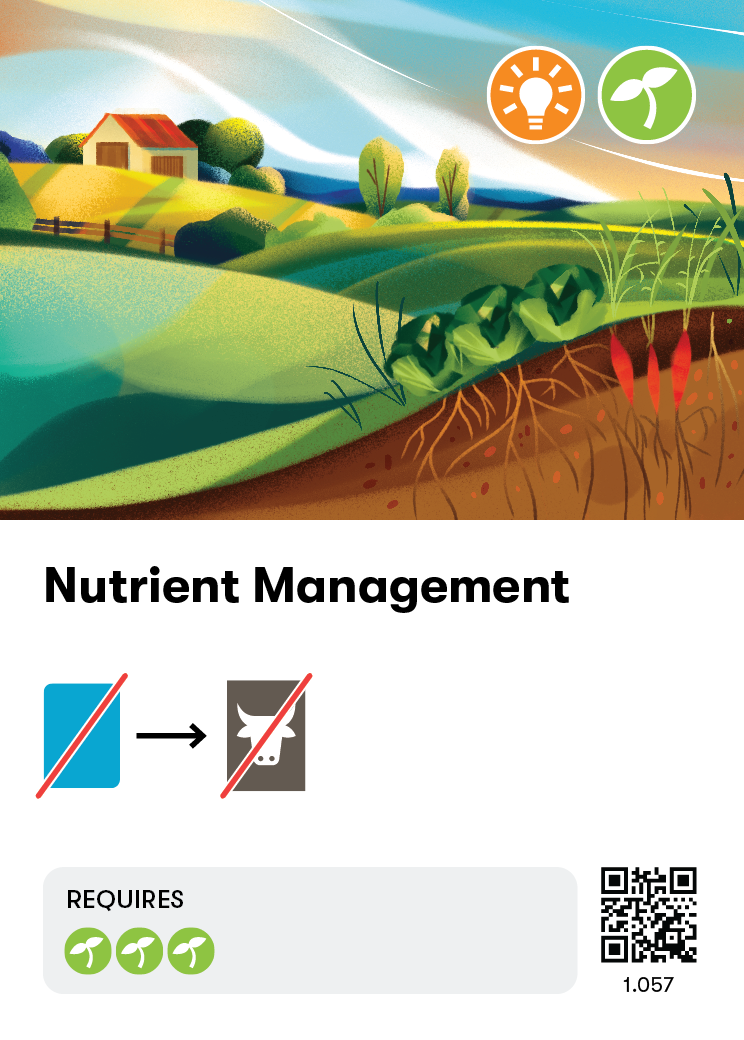Nutrient Management
Local Project
Nutrient management is trying to balance nutrients in soil to ensure healthy plant growth while minimizing damaging ecological impacts. Plants require nutrients like nitrogen, phosphorus, and potassium to grow properly. If there are too few nutrients, crops won't grow as well as they could and yields will be lower. However, getting the right balance of nutrients in the soil is a delicate operation. If there are too many nutrients in soil, they can leach into waterways and cause serious environmental pollution.
Ecological farming practices, like crop rotations, cover cropping, composting, and using natural fertilizers like manure, can be very effective at managing nutrients. These practices build healthy soils that are naturally more productive and resilient to pests, diseases, and erratic weather conditions. Nutrient balance can also be managed by avoiding synthetic fertilizers and pesticides, which can have negative impacts on ecosystems and human health. By focusing on building healthy soils and working with ecosystems, good nutrient management helps to create a more sustainable and resilient food system.
In comparison, industrial farming, which often involves monoculture crops, relies heavily on synthetic fertilizers to boost crop yields. Excessive fertilizers use leads to soil and water pollution, causing eutrophication (excessive plant and algal growth) and harmful algal blooms.
You must have 3 Ecology tags in this card's stack to take this action.
Discard 1 card to remove 1 Agriculture emission token from your player board.

Minimize health and environment impacts from pesticides and fertilizers (UN Environment Programme, UNEP)
Nutrient Management (University of California, Davis)
Rethinking Food Systems (UNEP)
Buy products created using regenerative farming practices like organic products.
Call on your national and local governments to implement policies and regulations that encourage responsible nutrient management practices.



